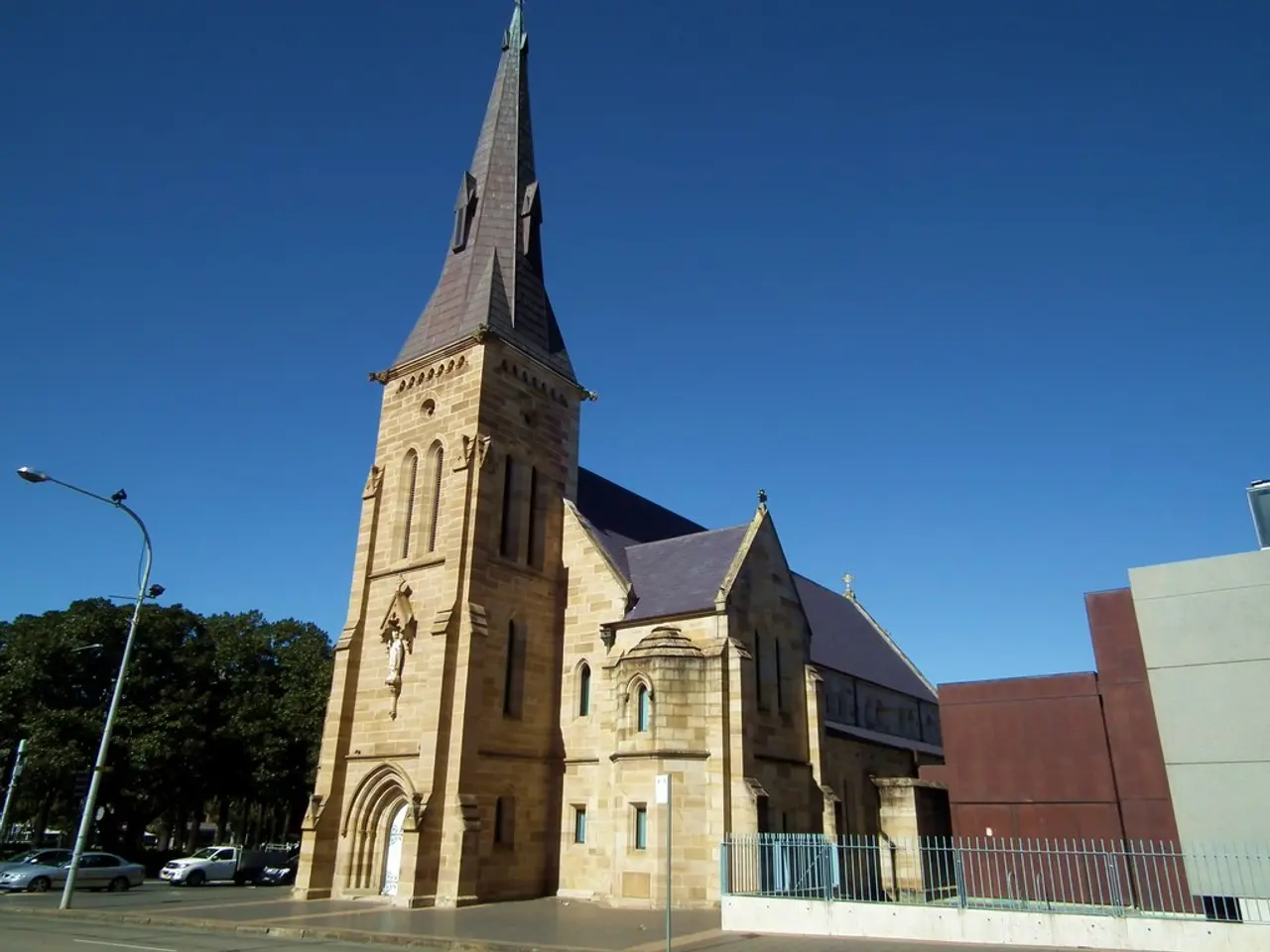The Multi-Million Euro Revamp of Zekiwa's Old Site in Zeitz, Saxony-Anhalt
Funds Allocated for Redevelopment of Old Zekiwa Location - Monetary Allocation for the Restoration of the Old Zekiwa Location
Let's dive into the details of the Lighthouse Project reviving the once bustling production site of baby carriage giant Zekiwa, located in Zeitz, Saxony-Anhalt. This ambitious initiative has a hefty budget of roughly 15.5 million euros, funded through the state initiative "Saxony-Anhalt - Together for a New European Bauhaus (NEB)", as announced by the NEB Network Office Saxony-Anhalt.
A further 8.8 million euros has been earmarked for the project partners, forming a multidisciplinary consortium including the city of Zeitz, Anhalt University, Bauhaus Dessau Foundation, Burg Giebichenstein Art University Halle, Martin Luther University Halle-Wittenberg, and the Forum Rathenau. The project, dubbed a "real laboratory," serves as a test space and research workshop, where research and development happen simultaneously to focus on sustainable, circular, and climate-neutral construction, aesthetics, innovative designs, and artistic design possibilities.
The "Reallabor Zekiwa Zeitz" is the largest NEB project in Saxony-Anhalt and the only real laboratory, with an estimated completion date of the end of 2027. The revitalization efforts will center around the former administration building and the wasteland, as well as the ground floor in the former main building of the once Europe-wide baby carriage factory. The old production site in Zeitz city center has been vacant since the early 1990s.
Under the "New European Bauhaus" motto, the European Union has encouraged society to develop ideas for future coexistence. Citizens, urban planners, entrepreneurs, scientists, architects, and designers are invited to propose suggestions, collaborate, and contribute to the project. This initiative is supported by EU funds from the Just Transition Fund for the Central German region, with Saxony-Anhalt using the fund to develop concrete projects in the Saxony-Anhalt brown coal region.
- Lighthouse Project
- Zeitz
- Saxony-Anhalt
- Bauhaus
- Burgenlandkreis
- Halle
- Martin Luther University
Hidden Treasures:- Industrial Heritage (Former Zekiwa site): Renowned baby carriage manufacturer Zekiwa's old site boasts a long-standing history in East Germany and substantial cultural importance.- Bauhaus Inspired Architecture and Design: The initiative is centered around innovative and aesthetically pleasing architecture and design, following the Bauhaus principles.- Sustainable Development: Focus on sustainable, circular, and climate-neutral construction reflects the importance placed on ongoing environmental responsibility.- Revitalized Urban Area: By transforming the former factory site into a cultural and economic hub, the local community will benefit from an increased number of businesses, tourist attractions, and cultural events.- Cultural Exchange and Collaboration: The project motivates contributions from a wide range of individuals and institutions, fostering collaboration and creativity across industries.- Heritage Preservation: The preservation of significant historical buildings, such as the former administration building, ensures their survival and importance for future generations.- Environmental Sustainability: The project also focuses on enhancing local green spaces, promoting environmental consciousness and community engagement.- Innovative Design Labs: The Zeitz Design Labs planned within the revitalized Zekiwa site will facilitate interdisciplinary collaboration between various creators, emphasizing craftsmanship and functional aesthetics.
- The Lighthouse Project in Zeitz, Saxony-Anhalt aims to revitalize the former Zekiwa site, a significant industrial heritage, through sustainable, circular, and climate-neutral construction, following Bauhaus principles.
- Citizens, urban planners, entrepreneurs, scientists, architects, and designers are invited to contribute to the project, fostering cultural exchange and collaboration across various industries.
- Education and self-development opportunities include vocational training programs and learning about sustainable living, personal growth, career development, and innovative design possibilities, as part of the Zeitz Design Labs.
- The revitalized urban area will offer home-and-garden improvement ideas, promoting lifestyle choices that align with sustainable practices, technology, and lifestyle aesthetics, contributing to community aid and the overall growth of the region.








